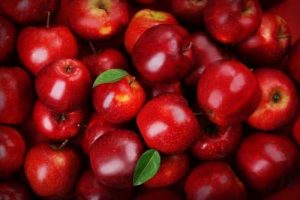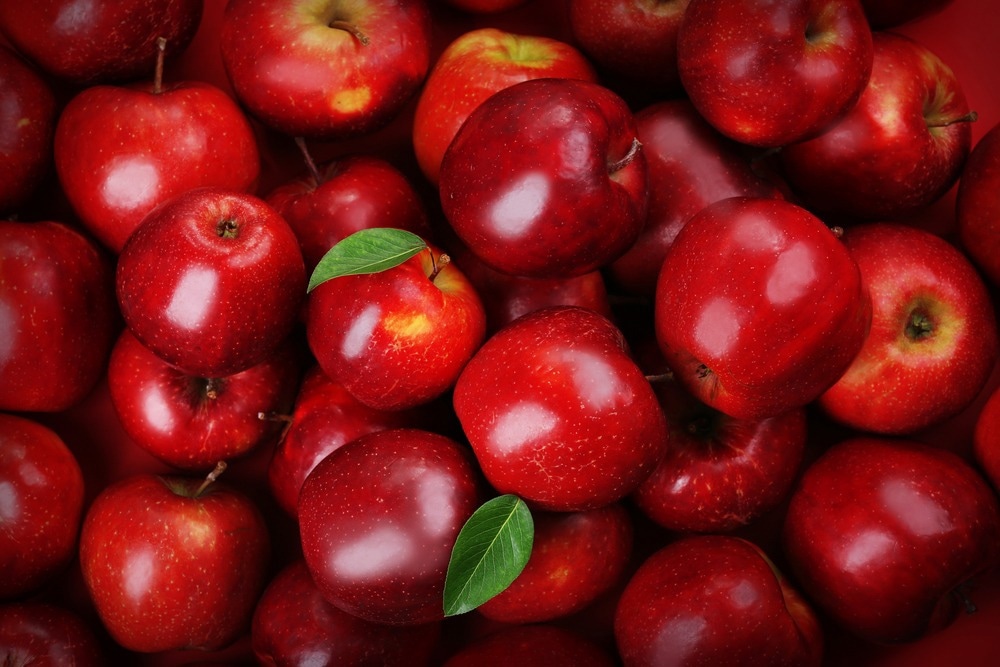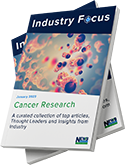An apple a day keeps the doctor away: polyphenol-enriched apples alter immune cell gene expression and fecal microbiota composition

In a recent study published in the Nutrients journal, researchers in New Zealand compared the effects of consuming red-fleshed apples (high anthocyanin content) and white-fleshed (control, low anthocyanin content) among healthy adults.

Study: A Polyphenol Enriched Variety of Apple Alters Circulating Immune Cell Gene Expression and Faecal Microbiota Composition in Healthy Adults: A Randomized Controlled Trial. Image Credit: AfricaStudio/Shutterstock.com
Background
The flavonoid composition of apples reportedly affects the risk of cancer and alters immunological pathways such as the nuclear factor kappa B (NF-κB) and tumor necrosis factor-alpha (TNF-α) levels.
Thereby, polyphenol intake may influence the incidence and progression of inflammatory diseases such as inflammatory bowel disease (IBD) and neurodegenerative disorders. Flavanoid-enriched apple intake also increases the abundance of beneficial microbes in the colonic microbiome.
The metabolization of flavonoids by intestinal microbes makes it critical to determine the association between polyphenol intake and the gut microbiota to ascertain the potential health benefits of consuming polyphenol-rich foods.
Intestinal microbiome dysbiosis may increase cancer risk and influence the response to various therapeutics, including anticancer agents. Studies have demonstrated the benefits of consuming flavonoid-rich apples in murine animals; however, data on the potential immunological benefits of red-fleshed apples in humans need further investigation.
About the study
In the present study, researchers investigated whether flavonoid-rich apple intake could alter humans' intestinal microbiome and pro-inflammatory gene expression.
The randomized, placebo-controlled, cross-over intervention study comprised 25 individuals consuming dried portions of red-fleshed or placebo (white-fleshed) apples daily over 2.0 weeks, followed by a washout period of one week and a cross-over period of 2.0 weeks. The participants provided fecal specimens, from which microbial deoxyribonucleic acid (DNA) was extracted to analyze the microbiome.
In addition, blood samples were obtained from the participants, from which peripheral blood mononuclear cell (PBMC) ribonucleic acid (RNA) was extracted for gene expression analysis.
Polyphenol content was assessed using liquid chromatography-mass spectrometry (LC-MS). Individuals, 20 to 61 years of age, with body mass index (BMI) ranging between 19 and 31 kg/m2 were recruited via advertising in local newspapers and at Auckland University.
Individuals with a history of anticancer therapy in the prior five years (excluding non-melanoma-type tumors in the skin), Crohn's disease, ulcerative colitis, irritable bowel syndrome, cardiovascular diseases, or diabetes were excluded from the analysis.
Cancer Research eBook

In addition, individuals with comorbidities such as cardiovascular diseases, diabetes, renal or hepatic disorders, smoking habits, change in medications in the previous three months, change in antibiotic use in the previous month, and individuals taking multivitamin supplements were excluded.
The participants filled out food variety questionnaires 14 days before study initiation. Participants also completed weekly questionnaires to assess intake of polyphenol-enriched foods, such as apples, red grapes, cranberries, berries (blackberries, raspberries, and blueberries), tea (black or green), red cabbage, eggplant, red wine, red-flesh peaches, red-flesh plums, and black rice.
Linear mixed-effects modeling, pathway enrichment analysis, 16S ribosomal RNA (rRNA) sequencing, principal coordinate analysis (PCoA), and partial least squares-discriminant analysis (PLS-DA) analysis were performed to analyze the samples.
Results
LC-HRAM-MS analysis findings indicated greater content of cyanidin-3-glucoside, 4-p-coumaryl quinic acid, phloridzin, quercetin 3-arabinoside, quercetin 3-galactoside, and phloridzin xyloside in red-fleshed apples.
Subtle differences were observed in the fecal microbiome of individuals who consumed different apples, with significant reductions in the abundance of Ruminococcus, Streptococcus, Roseburia, and Blautia and increased abundance of Lactobacillus, Sutterella, and Butyricicoccus in individuals consuming red apples.
In total, 18 messenger ribonucleic acid (mRNA) genes were expressed differentially expressed between the groups. 16 of the 18 were immunoglobulin (Ig) variable region-encoding genes involved in Ig production, complement activation, phagocytosis, and humoral immunity. The findings indicated that consuming red-fleshed apples for 2.0 weeks could affect immunological responses by modulating Ig expression.
The difference in anthocyanin content had minor effects on the fecal microbiome composition, a proxy of microbial counts in the lower intestine. The differences observed included microbes associated with the degradation of fibers and the production of short-chain fatty acids, such as Ruminococcus and Roseburia.
These microbes were reduced following anthocyanin-rich apple consumption, indicating potential fiber composition/content differences between red- and white-fleshed apples. In addition, red-fleshed apple consumption lowered the counts of Blautia, a microbe involved in digestion-resistant carbohydrate degradation, and Streptococcus, whose counts are inversely associated with dietary fructose levels.
Conclusion
Overall, the study findings showed that anthocyanin-rich red apples could alter immunological function compared to white-fleshed apples, with alterations probably related to fecal microbiome compositional differences.
However, further research must be performed to determine the mechanistic link between fecal microbiome compositional alterations and the expression of PBMC Ig genes.
-
Barnett, M. et al. (2021) "A Polyphenol Enriched Variety of Apple Alters Circulating Immune Cell Gene Expression and Faecal Microbiota Composition in Healthy Adults: A Randomized Controlled Trial", Nutrients, 13(4), p. 1092. doi: 10.3390/nu13041092. https://www.mdpi.com/2072-6643/13/4/1092
Posted in: Medical Science News | Medical Research News | Healthcare News
Tags: Anthocyanin, Antibiotic, Blackberries, Blood, Blueberries, Body Mass Index, Cancer, Carbohydrate, Cell, Chromatography, Cranberries, Crohn's Disease, Diabetes, Digestion, DNA, Dysbiosis, Fatty Acids, Flavonoid, Food, Fructose, Gene, Gene Expression, Genes, immunity, Immunoglobulin, Inflammatory Bowel Disease, Irritable Bowel Syndrome, Lactobacillus, Liquid Chromatography, Mass Spectrometry, Melanoma, Microbiome, Necrosis, Nutrients, Phagocytosis, Placebo, Polyphenol, Quercetin, Raspberries, Red Wine, Research, Ribonucleic Acid, RNA, Short-Chain Fatty Acids, Skin, Smoking, Spectrometry, Supplements, Syndrome, Tea, Therapeutics, Tumor, Tumor Necrosis Factor, Ulcerative Colitis, Wine

Written by
Pooja Toshniwal Paharia
Dr. based clinical-radiological diagnosis and management of oral lesions and conditions and associated maxillofacial disorders.
Source: Read Full Article